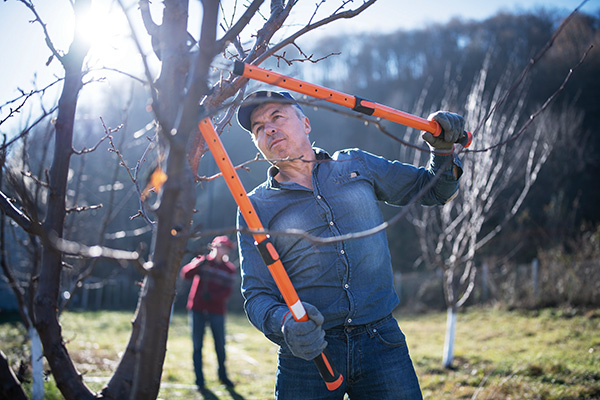(Family Features) Winter and colder weather mean it’s time to think about winterizing to help keep your home and everyone in it safe and comfortable – no matter what Mother Nature throws at you.
Winterizing your home now can help you avoid frozen pipes, storm damage and excessive bills. Because people tend to spend more time indoors in wintertime, it can be difficult to maintain those “perfect” interior conditions. HVAC systems may be less than efficient, and your home may not be as well insulated as it should be.
As a result, utility bills can be quite shocking, especially when you consider Americans are expected to spend more than 30% extra on natural gas or 6% more on electricity this winter due to inflation, according to the U.S. Energy Information Administration .
Homeowners could save as much as 20% on their energy bills by making some improvements to insulation and fixing air leaks. Additionally, to help ensure your home is ready as the thermometer slips, consider these ideas to winterize your home from the experts at Best Pick Reports and Five Star Rated.
1. Trim Your Trees
 Start outside by trimming all your trees back. Get rid of any overhanging branches that come near your house. Doing this may help avoid issues during wind, snow or ice storms and protect your roof if too much ice builds up on those branches.
Start outside by trimming all your trees back. Get rid of any overhanging branches that come near your house. Doing this may help avoid issues during wind, snow or ice storms and protect your roof if too much ice builds up on those branches.
While you are outside, clean out your gutters and remove any leaves that may have accumulated to help prevent overflow and attic leaks.
2. Add Insulation
You may need to install additional insulation in the attic if the existing insulation looks old, threadbare or patchy. New insulation can come in many different forms like polystyrene, fiberglass or wool, and can either be filled, rolled out or sprayed.
Additional insulation can help trap pockets of air and ensure your heat does not flow upward and out of the house. After all, up to 90% of homes in the U.S. are under-insulated, according to the North American Insulation Manufacturers Association.
3. Clean the Air Filter
Clean your HVAC air filter once per month, especially during the winter months. You are less likely to open any windows, so most of the air in your home is likely to be recirculated, making it important that the air is breathable and clean. Reusable filters can be washed under a running tap and left to dry before being replaced, which can help get rid of accumulated dust and debris.
4. Service the Air Conditioner
Use this change of season to get your air conditioning system professionally serviced. It may have been working overtime during a particularly hot summer, and you want to avoid any potential issues during the dead of winter. It may also be less expensive and easier to find a professional HVAC company with availability during the winter months.
5. Add a Programmable Thermostat
A programmable thermostat can help you save money and stay comfortable. It can be programmed for specific times of day, like when you are home and when you’re not. If it’s Wi-Fi-enabled, it can be accessed by an app on your smartphone for easy programming while out for the day or on vacation. While you may be able to install one yourself, it’s important to enlist the help of a professional if you are hardwiring the thermostat.
6. Reverse Your Fans
Simply flip the switch on the side of each ceiling fan in your home to reverse the direction of airflow back to clockwise. This practice creates an updraft, which pushes warm air down as it rises, keeping the heat where you need it. Sometimes, you can even change the direction of your fans with a remote control.
7. Clean Your Chimney
Whether you use the fireplace every day or only on occasion, it can be potentially hazardous if not serviced regularly. Have a professional company service your chimney every year before you begin to use it. If you have no intention of lighting anything, get a chimney balloon, which plugs the space, eliminating drafts and keeping heat in.
8. Weatherproof Windows
When it comes to windows, double pane is best for energy efficiency. However, they do come at a higher cost. If you are looking for a more budget-friendly option, apply weather stripping to the inside edges of your windows, which can help eliminate air leaks and blends in with the look of the window.
9. Winterize the Pipes
It’s important to protect exposed pipes, particularly those that are not in heated spaces. Insulating your pipes could prevent them from freezing over, which can cause excessive and costly damage. For a DIY option, pick up pipe foam at your local hardware store. Cut the foam to size and secure it with duct tape.
Taking steps to winterize your home can save you the headache of repairs and expenses down the road. If you need professional assistance with any winterization projects, visit bestpickreports.com and fivestarrated.com to find experts in your neighborhood.
Photos courtesy of Getty Images
Source:







